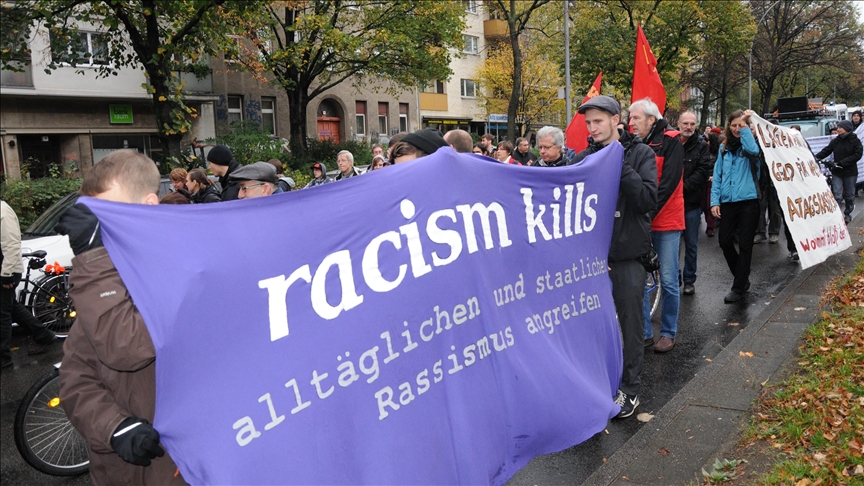German asylum reform draws criticism from NGOs over detention-like centers
Pro Asyl warns planned reception centers will function as ‘detention centers,’ isolating and marginalizing refugees

BERLIN
Germany's draft legislation for stricter immigration measures has drawn sharp criticism from NGOs that warn planned reception centers will function as "detention centers," isolating and marginalizing refugees.
On Wednesday, Chancellor Friedrich Merz's coalition government approved two draft bills that aim to align national legislation with the EU's Common European Asylum System (CEAS) and create new reception centers for asylum seekers who arrive through other EU countries.
The Pro Asyl rights group has strongly criticized the planned amendments, warning that the so-called "Dublin centers"—where asylum seekers who entered the EU through another member state will be held—would effectively result in the "de facto detention of refugees" in Germany.
"Isolating and marginalizing refugees in special facilities is irresponsible and causes despair, stress, and depression among those affected,” Pro Asyl’s spokeswoman Wiebke Judith said in a statement.
"The German government should abandon these plans. Specifically, there must be no mass detention-like conditions for refugees," she said.
Save the Children also criticized the draft legislation and called for changes to protect refugee children's rights under the new measures.
“The current drafts aim for stricter measures—such as the possibility of detention and detention-like accommodation, even for children. These stricter measures are not only disproportionate, but also violate children's rights,” legal expert Professor Constantin Hruschka said.
“The legislator's objective must be to avoid restrictions on children's freedom and to protect them as best as possible,” he stressed.
The foundation demanded that refugee children and minors be excluded from detention-like accommodations in the newly planned reception centers and insisted their access to education and healthcare must be guaranteed.
- Controversial asylum policy
According to the EU's Dublin regulation, asylum seekers must apply for refugee status in the first European country they enter. Although most refugees initially arrive in Europe through Spain, Italy, or Greece, many subsequently travel to Germany seeking better opportunities.
The German government, by introducing new legislation, intends to hold asylum seekers arriving through other EU member states in these Dublin centers, enabling quicker transfers to their countries of first entry.
The EU's Common European Asylum System (CEAS), set to take effect next year, aims to distribute accepted asylum seekers across member states. Under this framework, EU countries experiencing migration pressure will receive support from other members through either financial aid, material resources, or the relocation of asylum seekers.
Anadolu Agency website contains only a portion of the news stories offered to subscribers in the AA News Broadcasting System (HAS), and in summarized form. Please contact us for subscription options.







